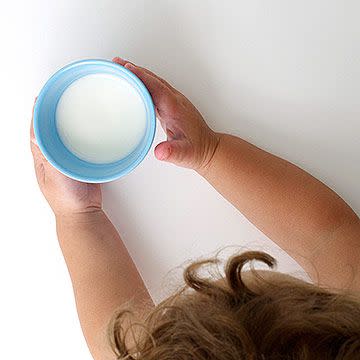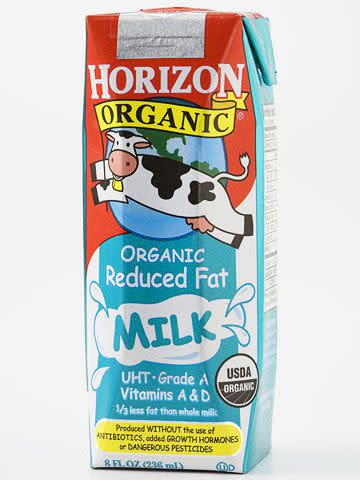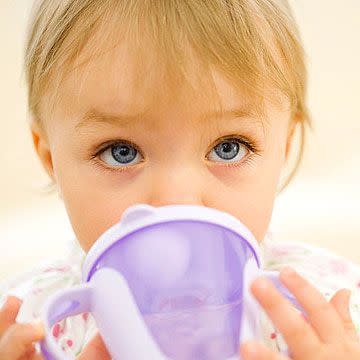Introducing Baby to Cow's Milk
The process of introducing dairy to your baby requires a bit of strategy. Get answers to your most-asked questions and learn the dos and don'ts of starting your baby on cow's milk.
When to Start

Your child will be ready for his first cup of whole milk once he's turned 1 year old. Younger babies cannot handle the extra minerals, protein, and sodium present in cow's milk, so it is best to wait until his first birthday.
How to Start

Introduce whole milk to Baby in a cup at dinner or during snack time. Most kids like the taste of cow's milk and will enjoy the treat! "Offer it in a cup; I usually suggest with a straw," says Ari Brown, M.D., author of Baby 411 and Toddler 411. "And I do not recommend that kids have 24/7 access to a cup or sippy cup. Offer milk at meal and snack time."
Introducing Your Baby to Cow's Milk
How Much Does Baby Need?

Until age 3, children only need 16 ounces of milk a day. Mom can offer both breast and cow's milk if desired, but formula is not necessary. "Just remember that kids don't have to chug their milk like they did their bottles," says Ari Brown, M.D., author of Baby 411 and Toddler 411. "Milk is now a beverage, a complement to their solid-food meals. It is not in itself a meal, like a bottle used to be. "
Nutritional Benefits

Milk contains bone-building nutrients such as calcium, riboflavin, vitamin D, and protein. Though kids can get these nutrients through other food, milk is the easiest way because it is so readily available.
What if Baby Doesn't Like the Taste?

If Baby scrunches up her nose at the taste of whole milk, try mixing in a little breast milk or formula to help with the new flavor. "If you are really desperate, you can add a teaspoon of Carnation Instant Breakfast," says Ari Brown, M.D., author of Baby 411 and Toddler 411. "But I discourage parents from going down this road, as they will end up creating a demanding child who only wants it that way."
How to Address an Allergy

Symptoms of an allergic reaction to milk include lip swelling, hives, vomiting, or blood in stools. These symptoms will appear shortly after Baby's exposure to milk. If your child is already drinking soy formula or hypoallergenic formula, check with her pediatrician before introducing cow's milk. The good news is most children start to outgrow the allergy by age 2.
What About Intolerance?

How does intolerance differ from an allergy? Babies who are intolerant to milk will have symptoms of bloating, gas, or loose stools. Intolerance is caused by an inability to digest lactose into simple sugar. Supplement your lactose-intolerant child's diet with other sources of calcium and vitamin D to ensure his healthy development.
